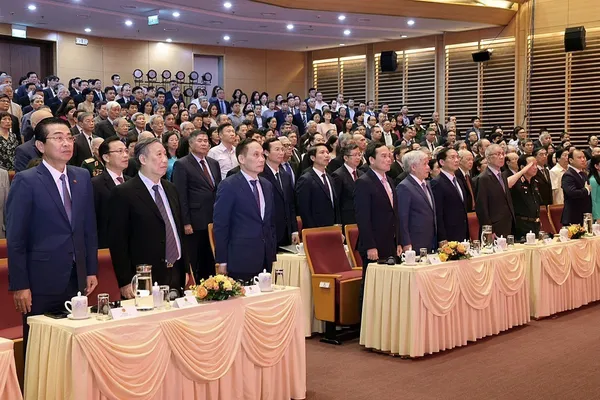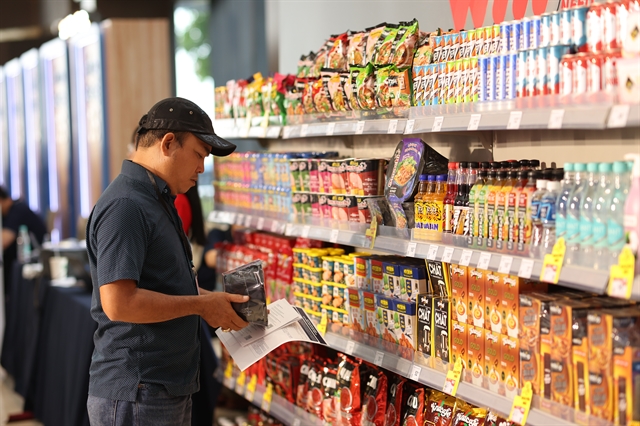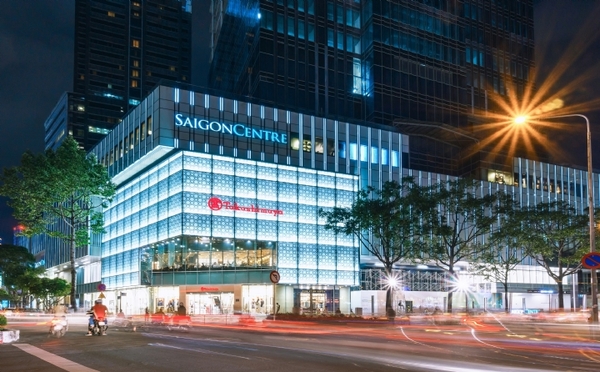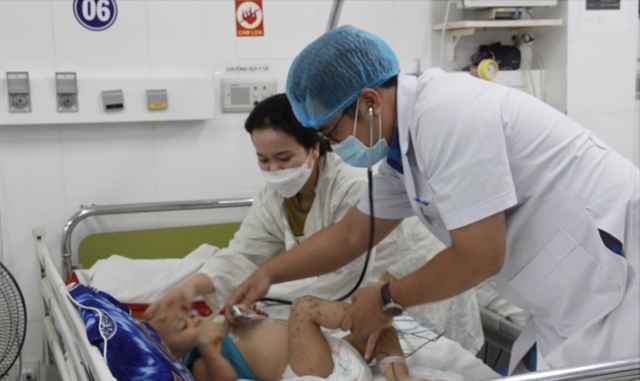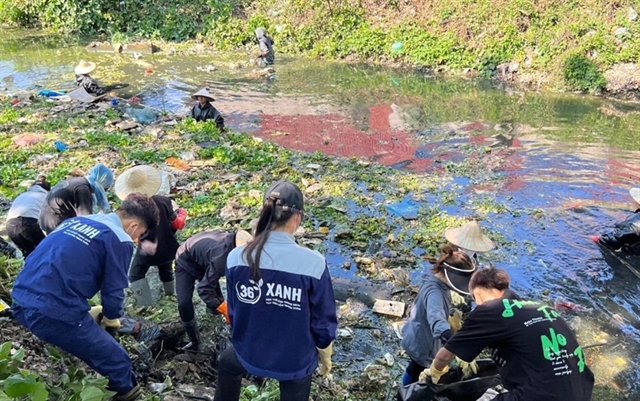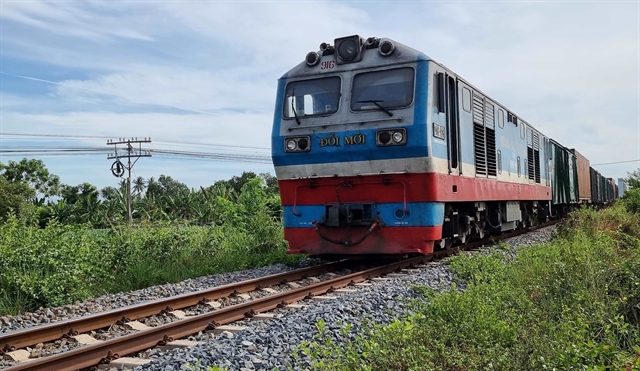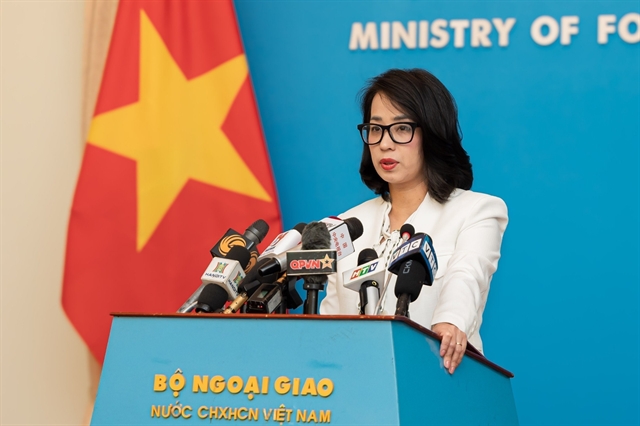 Politics & Laws
Politics & Laws

The embassy of Việt Nam in China is handling 29 requests from Vietnamese citizens stuck in Hubei Province, the epicentre of the sweeping coronavirus (2019-nCoV) outbreaks, wishing to return home.
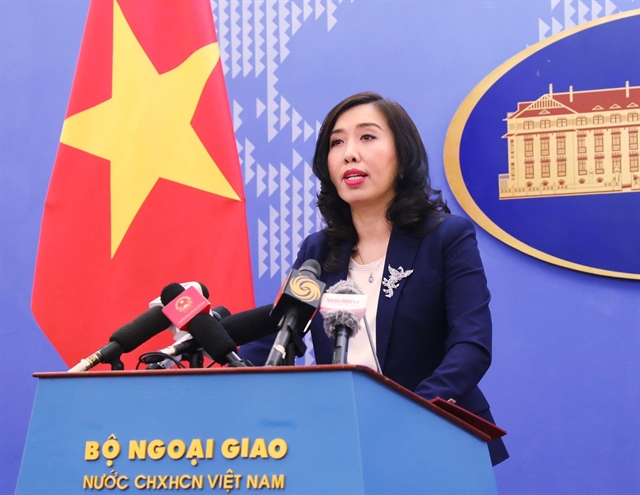
|
| Lê Thị Thu Hằng. spokesperson of the Ministry of Foreign Affairs at Thursday's press briefing in Hà Nội. — VNA/VNS Photo Lâm Khánh |
HÀ NỘI — The embassy of Việt Nam in China is handling 29 requests from Vietnamese citizens stuck in Hubei Province, the epicentre of the coronavirus epidemic, desperate to return home.
The figure was disclosed by the foreign ministry’s spokesperson Lê Thị Thu Hằng in Thursday press briefing held in Hà Nội which was dominated by questions over Việt Nam’s response to the epidemic.
“The foreign ministry is working with all relevant authorities to repatriate citizens in epidemic-hit areas who wish to return home. We are striving to do this as soon as possible,” Hằng said.
She added that since the virus broke out, the Vietnamese Government prioritised the safety of Vietnamese students – currently about 25 – studying in Wuhan.
Prime Minister Nguyễn Xuân Phúc on Tuesday asked that the transport ministry facilitate the Vietnamese students in China – especially Wuhan – in their journey home, but make sure that quarantine protocols are strictly observed.
PM Phúc said that flights to China to bring Vietnamese citizens home do not need to obtain his permission, overriding a previously issued ban on all flights to and from mainland China in light of the virus threats.
Chairman of the Government Office Mai Tiến Dũng on Wednesday said any Vietnamese nationals working in mainland China apart from Wuhan City – the epicentre of the outbreak – who wanted to return home could come back via border gates in seven northern provinces. They would also be put in quarantine once arriving in Việt Nam.
The foreign ministry said it has asked that all overseas diplomatic missions of Việt Nam to frequently get updates from Vietnamese citizens in their respective countries to be ready to provide assistance when necessary.
“We are keeping close contact with 400 Vietnamese citizens living, working, or visiting China – excluding the number of people on short-term visits or training courses and have not registered for citizen protection at the embassy, in order to help them should they meet any difficulty in exit or entry or during their stay in China,” Hằng said, adding that their health is overall in good condition.
The one Vietnamese citizen from the southern province of Đồng Nai that was officially confirmed to have tested positive for the 2019-nCoV, whose name has been withheld out of respect for their privacy, is currently being treated at the Hospital No.5 of Jiangxi Province, China.
The Vietnamese embassy in China has provided information of the patient to local authorities and requested support and treatment of the Vietnamese national, according to the foreign ministry’s spokesperson.
ASEAN events
Questioned about the possible impacts to various events slated to be held in Việt Nam in 2020, the year the country holds the chairmanship position of the Association of the Southeast Asian Nations (ASEAN), Vietnamese authorities said they are ready to make necessary changes.
“In case there arises the need to adjust the activities related to Việt Nam’s ASEAN chairmanship year 2020, Việt Nam will make sure to consult with other member nations and notify them of the changes, in line with ASEAN principle of consensus, to make sure that all activities in 2020 will be conducted with the highest level of safety and security,” Hằng said.
She added that Việt Nam stands ready to fulfil its role and responsibilities for ASEAN in 2020.
Việt Nam has proactively put forward its proposals and promoted regional efforts in combating the disease, she said, adding that Deputy Prime Minister and Minister of Foreign Affairs Phạm Bình Minh on January 30 has sent a letter to ASEAN members to form a ministerial-level joint-working group to enhance information sharing and better co-ordinate efforts to control the disease. — VNS

